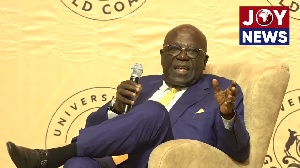Africa News of Friday, 4 April 2025
Source: www.ghanawebbers.com
Africa: Too Much Control Stifles AI, Experts Warn Governments
Experts at the Global AI Summit on Africa have called for action. They urge governments to reduce regulatory barriers. This will help attract private sector investment. Limited public resources are a major challenge for advancing AI in Africa.
Musalia Mudavadi, Kenya's Prime Cabinet Secretary, spoke at the summit. He emphasized that policy-making should support the private sector. "We lack enough resources to drive this agenda," he said. He urged governments to allow the private sector to thrive.
The summit featured over 1,000 participants from various sectors. It focused on "AI and Africa's Demographic Dividend." By 2030, AI could add $19.9 trillion globally and $2.9 trillion in Africa. This growth could lift 11 million Africans out of poverty and create 500,000 jobs yearly.
African leaders face complex challenges in maximizing AI's potential. Despite some progress, Africa is still behind in solutions and innovations.
Mudavadi warned against tariff barriers between countries. Such barriers can hinder connectivity efforts across the continent.
He noted that while Kenya has increased tech budgets, effectiveness is uncertain. "Are we targeting our investments correctly?" he asked. He stressed the need for digital skills training for young people early on.
Strive Masiyiwa, Founder of Econet Group, echoed these sentiments. He stated that bold investments in education are crucial for Africa’s future in AI.
"We won't succeed if our kids can't do math or code," he said. "We must fix our education systems." He highlighted that hustlers without skills will struggle in an AI-driven world.
Last week, Masiyiwa announced plans for an AI factory in South Africa by June 2025. This facility will use advanced chips from Nvidia and serve as a continental hub for AI development.
The initiative will expand to Egypt, Kenya, Morocco, and Nigeria after its launch in South Africa. "These compute centers are for all young researchers across the continent," he said.
Masiyiwa emphasized that access would not be limited to elite institutions: "The future belongs to young people building apps using AI." He believes they just need the right tools to succeed.











